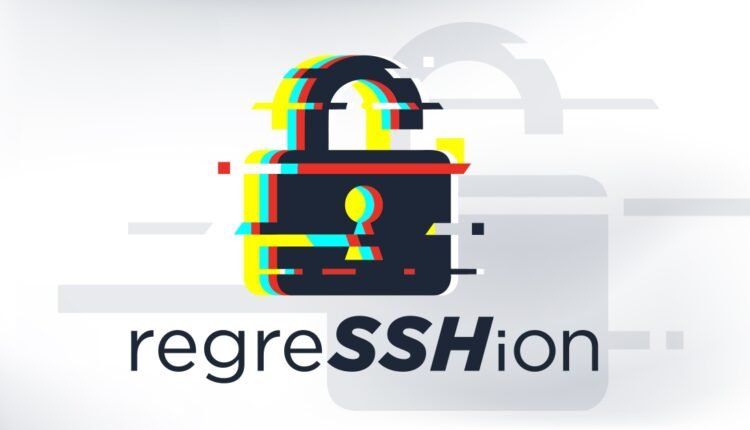The Qualys Threat Research Unit (TRU) has discovered a Remote Unauthenticated Code Execution (RCE) vulnerability in OpenSSH’s server (sshd) in glibc-based Linux systems. CVE assigned to this vulnerability is CVE-2024-6387. The vulnerability, which is a signal handler race condition in OpenSSH’s server (sshd), allows unauthenticated remote code execution (RCE) as root on glibc-based Linux systems; that presents a significant security risk. This race condition affects sshd in its default configuration.
With over 14 million instances worldwide, regreSSHion is severe and critical, especially for enterprises that rely heavily on OpenSSH for remote server management. OpenSSH is known to be one of the most secure software in the world. This vulnerability is a glaring gap in an otherwise near-flawless implementation.
Affected OpenSSH versions:
- OpenSSH versions earlier than 4.4p1 are vulnerable to this signal handler race condition unless they are patched for CVE-2006-5051 and CVE-2008-4109.
- Versions from 4.4p1 up to, but not including, 8.5p1 are not vulnerable due to a transformative patch for CVE-2006-5051, which made a previously unsafe function secure.
- The vulnerability resurfaces in versions from 8.5p1 up to, but not including, 9.8p1 due to the accidental removal of a critical component in a function.
OpenBSD systems are unaffected by this bug, as OpenBSD developed a secure mechanism in 2001 that prevents this vulnerability.
Potential Impact of regreSSHion
This vulnerability, if exploited, could lead to full system compromise where an attacker can execute arbitrary code with the highest privileges, resulting in a complete system takeover, installation of malware, data manipulation, and the creation of backdoors for persistent access. It could facilitate network propagation, allowing attackers to use a compromised system as a foothold to traverse and exploit other vulnerable systems within the organisation.
Moreover, gaining root access would enable attackers to bypass critical security mechanisms such as firewalls, intrusion detection systems, and logging mechanisms, further obscuring their activities. This could also result in significant data breaches and leakage, giving attackers access to all data stored on the system, including sensitive or proprietary information that could be stolen or publicly disclosed.
This vulnerability is challenging to exploit due to its remote race condition nature, requiring multiple attempts for a successful attack. This can cause memory corruption and necessitate overcoming Address Space Layout Randomization (ASLR). Advancements in deep learning may significantly increase the exploitation rate, potentially providing attackers with a substantial advantage in leveraging such security flaws.
Immediate Steps to Mitigate Risk
Addressing the regreSSHion vulnerability in OpenSSH, which enables remote code execution on Linux systems, demands a focused and layered security approach. Below are concise steps and strategic recommendations for enterprises to safeguard against this significant threat:
- Patch Management: Quickly apply available patches for OpenSSH and prioritise ongoing update processes.
- Enhanced Access Control: Limit SSH access through network-based controls to minimise the attack risks.
- Network Segmentation and Intrusion Detection: Divide networks to restrict unauthorised access and lateral movements within critical environments and deploy systems to monitor and alert on unusual activities indicative of exploitation attempts.
Technical details of the vulnerability are available at: https://www.qualys.com/2024/07/01/cve-2024-6387/regresshion.txt











